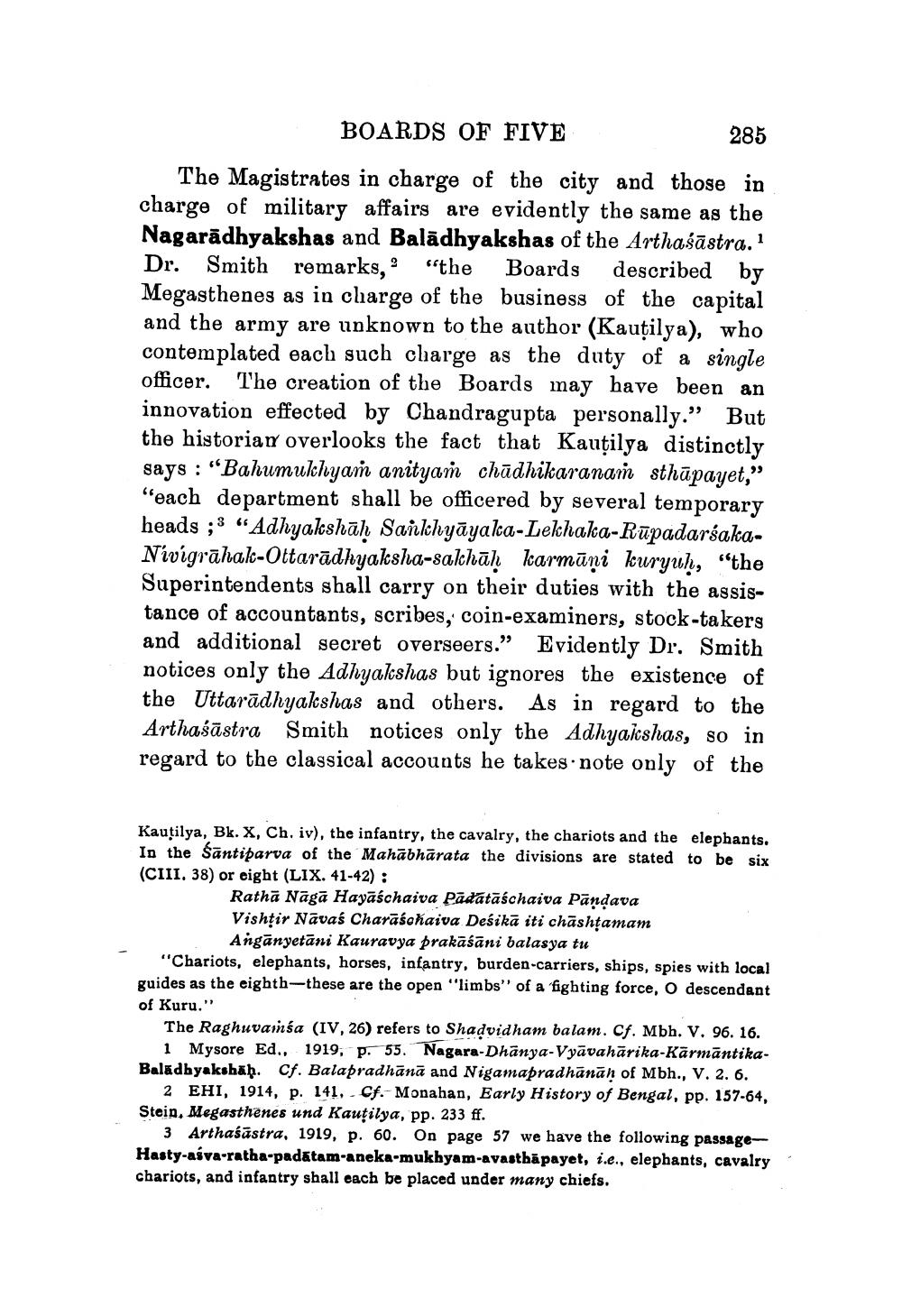________________
BOARDS OF FIVE
285
The Magistrates in charge of the city and those in charge of military affairs are evidently the same as the Nagarādhyakshas and Balādhyakshas of the Arthaśāstra. 1 Dr. Smith remarks, "the Boards described by Megasthenes as in charge of the business of the capital and the army are unknown to the author (Kautilya), who contemplated each such charge as the duty of a single officer. The creation of the Boards may have been an innovation effected by Chandragupta personally.” But the historiary overlooks the fact that Kautilya distinctly says : "Bahumukhyam anityam chādhikaranam sthāpayet," "each department shall be officered by several temporary heads ;3 "Adhyakshāh Sankhyāyalca-Lekhaka-RūpadarśakaNivigrāhak-Ottarādhyaksha-salchāḥ karmūni kuryuh, “the Superintendents shall carry on their duties with the assistance of accountants, scribes, coin-examiners, stock-takers and additional secret overseers.” Evidently Dr. Smith notices only the Adhyakshas but ignores the existence of the Uttarādhyakshas and others. As in regard to the Arthaśāstra Smith notices only the Adhyakshas, so in regard to the classical accounts he takes note only of the
Kautilya, Bk. X, Ch. iv), the infantry, the cavalry, the chariots and the elephants. In the śāntiparva of the Mahābhārata the divisions are stated to be six (CIII. 38) or eight (LIX. 41-42) :
Rathā Nāgā Hayaśchaiva Pādātāśchaiva Pandava Vishțir Nāvas Charāśchaiva Deśikā iti chashtamam
Angānyetāni Kauravya prakāśāni balasya tu "Chariots, elephants, horses, infantry, burden-carriers, ships, spies with local guides as the eighth-these are the open "limbs'' of a fighting force, O descendant of Kuru."
The Raghuvainsa (IV, 26) refers to Shadvid ham balam. Cf. Mbh. V. 96. 16.
1 Mysore Ed., 1919, p. 55. Nagara-Dhānya-Vyāvahārika-KārmāntikaBaladhyakshäþ. Cf. Balapradhānā and Nigamapradhānāḥ of Mbh., V. 2. 6.
2 EHI, 1914, p. 141, - Cf. Monahan, Early History of Bengal, pp. 157-64, Stein, Megasthenes und Kautilya, pp. 233 ff.
3 Arthaśāstra, 1919, p. 60. On page 57 we have the following passageHasty-asva-ratha-padatam-aneka-mukhyam-avasthāpayet, i.e., elephants, cavalry chariots, and infantry shall each be placed under many chiefs.




